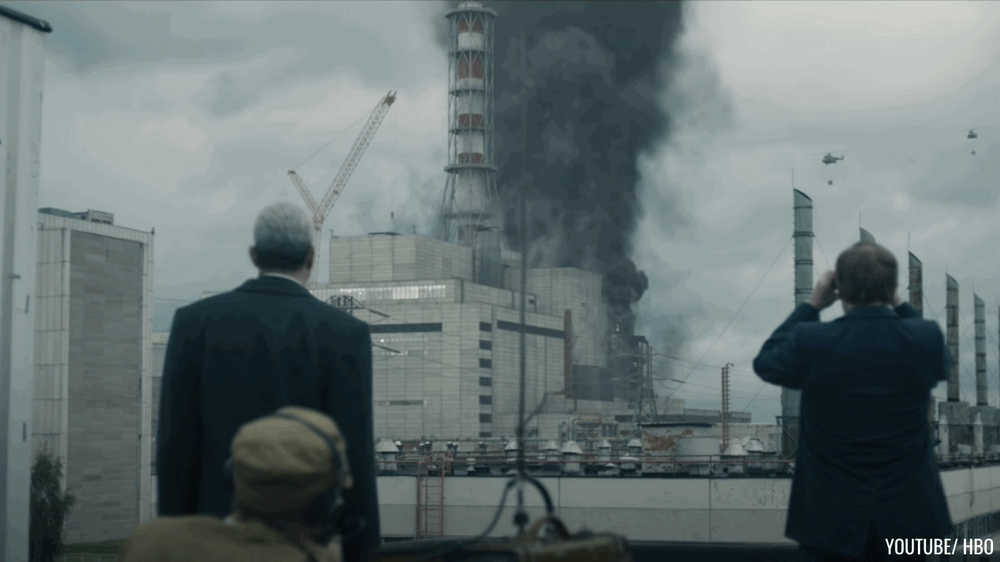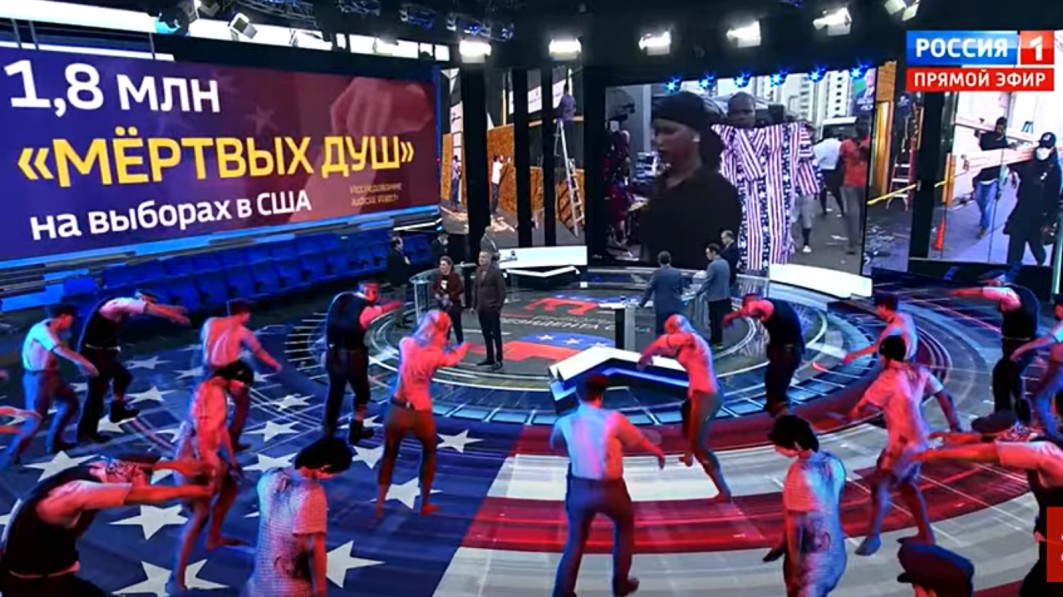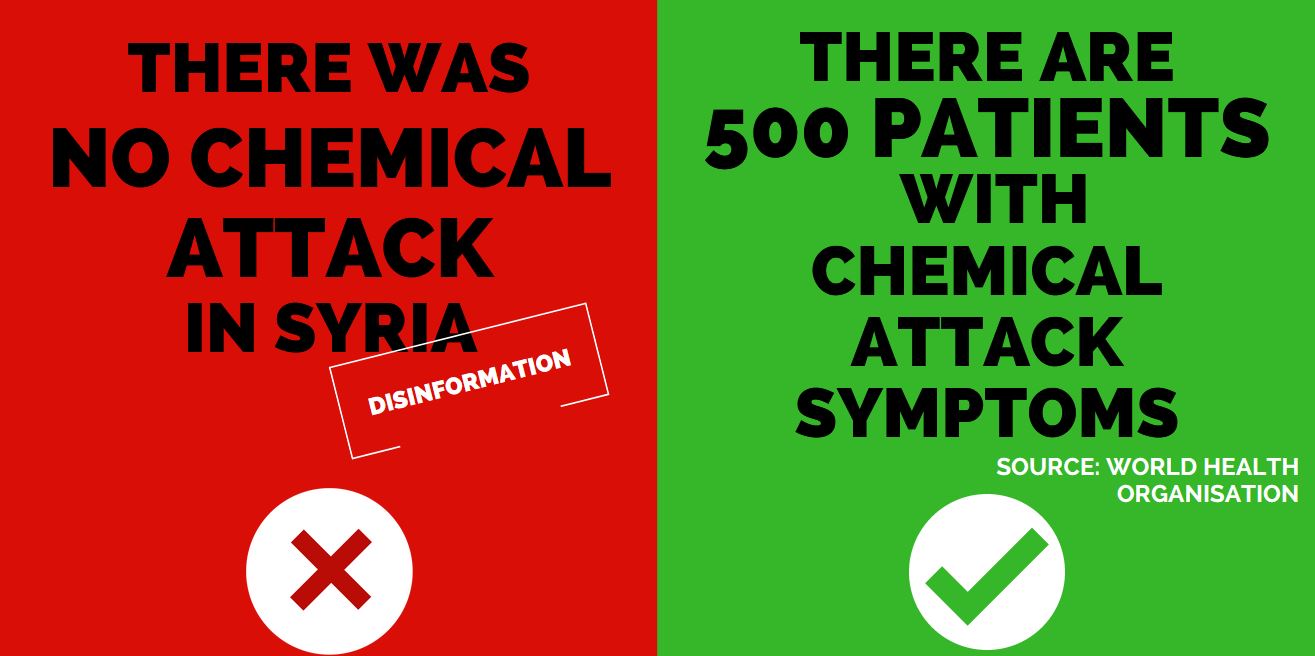While Russia has declared a withdrawal from its vast military presence at Ukraine’s borders, Ukraine continues to dominate the flow of disinformation this week. We hear familiar tropes that “Ukraine is preparing a war against Russia.” “The US is pushing Ukraine towards a war, but blames Russia,” and “Ukraine obeys the US.” Ukraine is, together with Czechia, Slovakia, and the Baltic States, “US puppets.”
Another week’s big topic is, not surprisingly, the investigation into the explosion at an ammunition depot in Czechia and the diplomatic row around it. According to the pro-Kremlin media, it is all about “Russophobia.” The investigation into the explosion, which showed traces of Russian military intelligence involvement, was “insane” and nothing but a US “provocation” – a set-up.
The Chernobyl Disasters
This week, the world observed the 35th anniversary of the Chernobyl disaster. The 26 April 1986 explosion at reactor 4 of the Vladimir Ilyich Lenin Nuclear Power Plant at Chernobyl, to the north of Kyiv, rates as one of the largest radiation contamination incidents in history, comparable to the Fukushima disaster in 2011 and the 1957 Kyshtym disaster.
But Chernobyl was not only a nuclear disaster, it was a political disaster, demonstrating the consequences of disinformation and the inability of an authoritarian system to handle a crisis. The entire chain of events was marred with misinformation:
- The firefighters were never informed about the nuclear fallout, exposing them to lethal levels of radiation;
- Local authorities did not order an evacuation of the nearby town of Pripyat;
- Central Soviet authorities did not admit an incident until several days later – a nuclear power plant in Sweden over one thousand kilometers away noted a spike in radiation levels and evacuated its staff
Eventually, the authorities evacuated civilians, living in the vicinity of the power plant. Firefighters, medical staff, soldiers, scientists were thrown into the disaster area with little or no equipment. There is no doubt about the heroism of the thousands of Chernobyl liquidators; just as there is no doubt about the cowardice and deceit of Soviet officials on all levels. The Soviet leadership’s attempt in 1986 to cover up the disaster was an act of violence against the peoples of the Soviet Union and of its neighbors. The HBO series Chernobyl describes in a dramatized version the disaster, the authorities’ reactions, and the consequences.
Battling against the leaks
To commemorate the anniversary, the Russian state news agency RIA Novosti highlights the work of the KGB in attempting to hush down the disaster:
The Role of the KGB was to monitor the object, which was in a very bad shape and was a real threat to our country. Furthermore, intelligence services of foreign governments showed a big interest in the object, demonstrating from day one an unusual activity in attempting to collect information that could be useful.
RIA Novosti praises in a second article the efforts of the KGB in securing the information space on the disaster. The agency quotes a KGB veteran:
We did not allow any information to leak out. But we gained experience on how information in extreme situations could be obtained through peripheral stakeholders and how to prevent it.
In the universe of RIA Novosti, the hushing up of the disaster was the real heroism. And the spirit of Chernobyl is still alive. Lie, deny, falsify.
Discrepancy in numbers
Few countries in the world have suffered worse from the COVID-19 pandemic than Russia. The excess mortality in Russia in 2020 was well over 300,000, while the country officially acknowledged the death toll from COVID -19 amounts to around 110,000. In most other European countries, the excess mortality is almost entirely explained by the pandemic. In Russia – 200,000 citizens have died from unexplainable causes.
Russia is aggressively attempting to market its Sputnik V vaccine to Europe – the approval procedure is ongoing. Yet, Russia is seriously lagging behind in its effort to vaccinate its population. 4.8 percent of Russians are fully vaccinated. The average for EU/EEA countries is 8.9 percent. Vaccine hesitancy is one of the explanations for Russia’s slow roll-out of the vaccines. Russian state media have consistently broadcast various conspiracy theories around the pandemic and the vaccines, scaring the audiences with side effects.
Disinformation is deadly. Chernobyl demonstrated this in the most tragic way. Without correct data, a society cannot address its issues. This week, the Kremlin declared Alexei Navalny’s movement “extremist”. The independent news agency Meduza was labelled a “Foreign Agent”. The NGO Reporters without Borders underlined recently the value of independent, factual journalism in fighting the pandemic.
The Kremlin is waging a war against dissent and the exchange of ideas. A war against pluralism and ideas.
The lies about Chernobyl did not save the USSR. Now, the Kremlin’s lies are weakening Russia.
Further reading:
- Chornobyl Deadly Legacy: 35 years on
- Kremlin knew Chornobyl was an accident waiting to happen 3 years before 1986 disaster
- Chornobyl nuclear disaster was tragedy in the making, declassified KGB files show
- Kremlin knew Chornobyl was an accident waiting to happen 3 years before 1986 disaster
- Ukraine declassifies 190 more KGB documents on Chornobyl disaster
- Chornobyl: Reality and fiction in the popular miniseries, according to eyewitnesses
- Chornobyl destroyed the Soviet Union
- Meet the Ukrainians who returned to live in Chornobyl
- Ukrainian banks, enterprises, media and energy companies under powerful cyber attack, including Chornobyl NPP
- Rare animal and bird species return to Chornobyl after 30 years of abandonment
- Chornobyl Exclusion Zone to be Home to Safe Solar Power
- Slavutych: the town born from the Chornobyl nuclear disaster
- Chornobyl: the secret tragedy which led to the collapse of the Soviet Union
- The Chornobyl Dictionary: Too Hot to Hide
- Nature takes over Ukraine’s Chornobyl exclusion zone
- The Chornobyl Dictionary: Too Hot to Hide
- Restoring the equilibrium: wild nature is making a comeback at the Chernobyl exclusion zone









